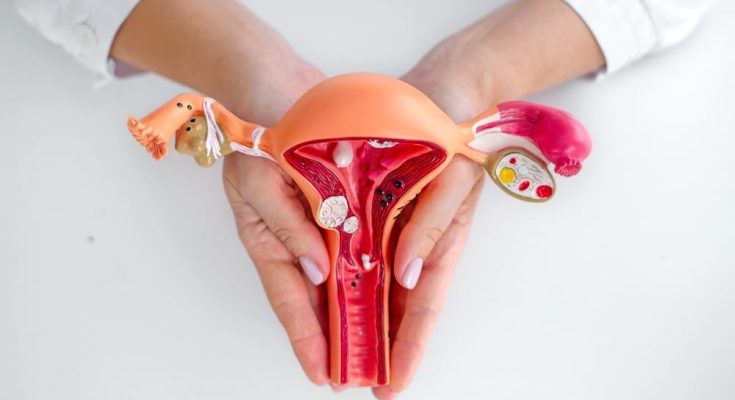Disclaimer: This article is for educational and informational purposes only. It does not provide medical advice or diagnosis. Always consult a qualified healthcare provider regarding personal health concerns, prevention, or treatment options.
3 Intimate Habits of Husbands That May Increase Their Wives’ Risk of Cervical Cancer
Cervical cancer remains one of the most preventable yet persistent cancers affecting women around the world. Despite advancements in screening and vaccination, many families continue to face its devastating effects. What often goes unnoticed, however, is that a husband’s daily habits and health decisions can quietly influence his wife’s risk.
Many people assume cervical cancer is caused solely by a woman’s health, hygiene, or genetic factors, but science shows that male partners play a crucial role too. When men neglect their own wellness, ignore safe intimacy practices, or maintain unhealthy behaviors, they can unknowingly contribute to long-term risks for their spouses.
Below are three intimate habits that husbands should avoid — and how small lifestyle changes can help protect their wives’ health and prevent cervical cancer.

1. Intimacy During Menstruation
For some couples, intimacy during a woman’s period might seem harmless or even normal. But doctors warn that this habit can increase the risk of cervical infection. During menstruation, a woman’s cervix naturally opens slightly, which makes it more vulnerable to bacteria and viruses — including the human papillomavirus (HPV), the primary cause of cervical cancer.
In one widely discussed medical case, a woman named Xiao Le began experiencing lower abdominal pain and irregular bleeding after years of such intimacy. After finally visiting her doctor, she was diagnosed with stage 3 cervical cancer. Her physicians suggested that prolonged exposure to infection during menstruation could have been a contributing factor.
Experts emphasize that this is not just a matter of comfort or personal preference — it’s about protecting health. Avoiding intercourse during menstruation can reduce the risk of infections, inflammation, and long-term complications. Communication and mutual understanding between partners are key to maintaining intimacy safely.

2. Smoking and Secondhand Exposure
Smoking remains one of the most dangerous yet common habits among men, and it doesn’t only harm the smoker. Cigarette smoke contains thousands of toxins, many of which are known carcinogens. When inhaled secondhand, these substances can weaken a woman’s immune system and damage cervical cells, making it harder for her body to fight off infections such as HPV.
Research shows that women exposed to secondhand smoke face a significantly higher risk of cervical abnormalities. Over time, this exposure can also disrupt hormone balance, increase oxidative stress, and even interfere with fertility and pregnancy.
For husbands who smoke, quitting is one of the most powerful ways to protect not just their own lungs but also their partner’s reproductive health. Even reducing smoking indoors or around family members can make a meaningful difference.
What might seem like a small personal choice can become a shared health burden — and one that’s entirely preventable with commitment and care.
3. Avoiding Protection During Intimacy
The refusal or neglect to use protection during intercourse remains one of the most overlooked risk factors for cervical cancer. The use of protection is not merely about preventing pregnancy; it’s also essential for preventing the spread of sexually transmitted infections, particularly HPV.
HPV is a highly common virus that can be transmitted even when no symptoms are present. While most infections clear up naturally, persistent HPV infection can lead to cervical cell changes that may develop into cancer over time.
Unfortunately, some men resist using protection, claiming discomfort or reduced intimacy. However, experts stress that the health consequences of unprotected intercourse far outweigh these concerns. Consistent use of protection significantly reduces the risk of HPV and other infections, safeguarding both partners’ health.
In marriages or long-term relationships, regular health screenings for both partners are equally important. Men should take responsibility for testing and medical check-ups, ensuring that intimacy remains safe and mutually respectful.

A Shared Responsibility
Cervical cancer prevention isn’t solely a woman’s duty — it’s a partnership rooted in understanding, respect, and shared health awareness. Husbands who take proactive steps — quitting smoking, supporting regular medical checkups, maintaining hygiene, and respecting their partner’s boundaries — can play a vital role in reducing risk.
Education and awareness can also make a lasting difference. Open communication between partners about sexual health, vaccination, and safe practices helps build stronger and healthier relationships.
In the end, love isn’t just expressed in words or affection — it’s reflected in the choices partners make to protect one another’s wellbeing.
Cervical cancer can often be prevented with early detection, HPV vaccination, and healthy daily habits. And when couples face health challenges together, prevention becomes more than medicine — it becomes a form of care, trust, and enduring love




